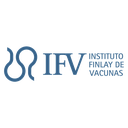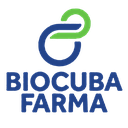Executive Secretary

VIII International Symposium on Chemistry and Pharmaceutical Sciences
SICF
VIII Symposium "Design, Obtaining and Development of Drugs"
Abstract
Background and aims: A GnRH-based, therapeutic vaccine candidate against hormone-sensitive prostate cancer has demonstrated its capacity to control the disease in phase I/II trials. Here, we characterized the isotype/subclass profiles of the anti-GnRH humoral response generated by the vaccination and analyzed it association with patients’ clinical outcomes. Methods: The immunoglobulin isotypes and IgG subclass of the humoral immune response of 37 patients with locally advanced prostate adenocarcinoma, stages 3-4, immunized with the vaccine candidate, were characterized. Additionally, serum testosterone and PSA concentrations, as indicators of tumor response, were determined.
Results: All the patients developed strong and prolonged anti-GnRH antibody responses, which caused a short to mid-term decrease in serum levels of testosterone and PSA. After immunizations, anti-GnRH IgM/IgG and IgG1/IgG3 responses were found. Following radiotherapy, the humoral response switched to IgG (IgG1/IgG4). The patients who underwent a short-term biochemical relapse were characterized by significantly higher levels of anti-GnRH IgG titers, subclasses IgG1 and IgG4. The same characteristics, along with a high response of specific IgM antibodies at the end of immunizations, and the development of anti-GnRH IgA antibody responses following radiotherapy, were observed in patients whose disease progressed, compared to the ones with the controlled disease. Conclusion: The type of the humoral response against anti-GnRH, induced by vaccination could be determinant to trigger other immunological mechanisms which, as a whole, contribute to the control of tumor growth.
Resumen
Un candidato vacunal basado en GnRH para la terapia del cáncer de próstata sensible a castración ha demostrado capacidad para controlar la enfermedad en ensayos clínicos Fase I/II. En el trabajo se caracterizó el perfil de isotipos y subclases de la respuesta humoral anti – GnRH generada por la vacunación y se analizó su asociación con el desenlace clínico de los pacientes. Se caracterizó la respuesta anti – GnRH de 37 pacientes con adenocarcinoma de próstata localmente avanzado T3/T4, inmunizados con el candidato vacunal. Además, se determinaron las concentraciones de testosterona y PSA como indicadores de la respuesta anti - tumoral. Todos desarrollaron fuerte y prolongada respuesta anti – GnRH, que causó el decrecimiento a corto y mediano plazo de los niveles de testosterona y PSA séricos. Los anticuerpos producidos después de las inmunizaciones eran IgG1/IgG3. Posterior a la radioterapia la respuesta humoral cambió a IgG (IgG1/IgG4). La recurrencia bioquímica temprana se produjo en los pacientes con niveles superiores de anticuerpos anti – GnRH de subclases IgG1 e IgG4. Las mismas características, además de alta respuesta de anticuerpos IgM específicos posterior a las inmunizaciones y el desarrollo de respuesta IgA anti- GnRH post radioterapia, fueron observadas en pacientes cuya enfermedad progresó. El tipo de respuesta humoral inducida por la vacunación parece determinante para activar otros mecanismos inmunológicos que, en su conjunto, contribuyen al control del crecimiento tumoral.
About The Speaker

Dra. Ana Campal

Discussion




